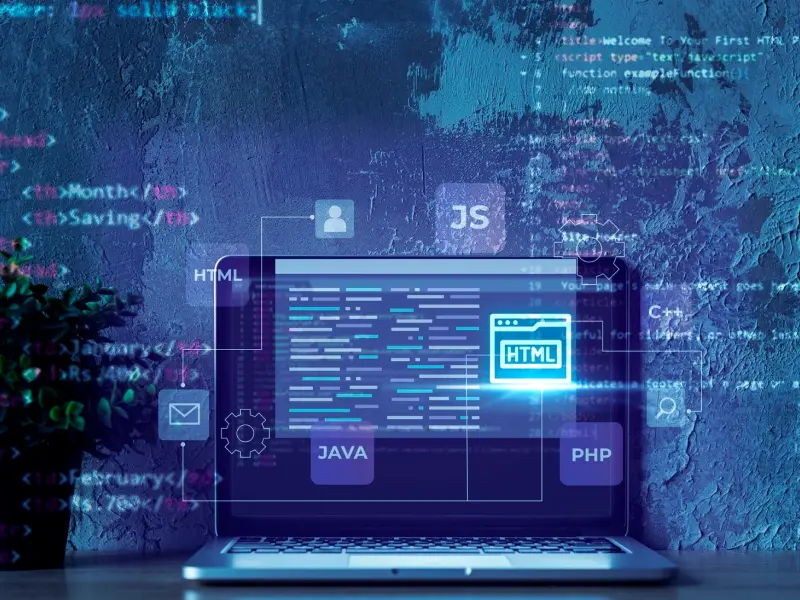In today’s highly competitive job market, coding assessment interviews have become a crucial part of the hiring process for many companies. Before making a choice in hiring, businesses use these interviews to assess the technical skillset and competencies of candidates. On account of this, it’s pivotal for job seekers to be best-prepared and equipped with the skills they need to ace these tests.
Introduction to the Coding Assessment Interview
The coding assessment interview is a specialized form of interview where candidates are tested on their coding and problem-solving skills. It entails a series of problem-solving questions that the candidate must solve within a stipulated time frame. These evaluations can be done in person, over the phone, or online.
During a coding assessment interview, candidates are given the chance to showcase their technical abilities and demonstrate their aptitude for solving complex problems. These interviews are intended to evaluate a candidate’s coding abilities, logical reasoning, attention to detail, and capacity for pressured labor.
One of the key aspects of a coding assessment interview is the time limit. Candidates are given a specific amount of time to complete each coding challenge or question. This time constraint adds an element of pressure and tests the candidate’s ability to work efficiently and effectively.
It is important for candidates to come prepared for a coding assessment interview. This includes practicing coding problems, familiarizing oneself with common algorithms and data structures, and brushing up on programming languages and concepts. By doing so, candidates can feel more confident and perform at their best during the interview.
Additionally, candidates should be prepared to explain their thought process and approach to solving coding challenges. Interviewers frequently look for applicants who can clearly explain their thinking and problem-solving processes since this shows both technical proficiency and the capacity for effective communication.
While the coding assessment interview can seem daunting, it is important to approach it as an opportunity to showcase your skills and demonstrate your potential value to the employer. By understanding the purpose and structure of these interviews, you can better prepare yourself for success.
Importance of Coding Assessment Interviews in the Hiring Process
Coding assessment interviews have gained prominence in the hiring process due to several reasons. First, they give employers a useful way to assess a candidate’s coding skills in a realistic setting. This helps to assess their ability in logic, problem solving and accuracy.
Employers are aware that coding involves more than just creating code; it also requires finding effective solutions to challenges. By incorporating coding assessment interviews into the hiring process, employers can evaluate a candidate’s ability to translate complex problems into elegant and scalable solutions. These interviews allow candidates to showcase their coding skills in a simulated environment, which closely mirrors the challenges they will face in their actual roles.

Moreover, coding assessments help employers make more informed decisions by objectively comparing candidates based on their performance in the assessments. This reduces the reliance on subjective measures and bias, granting opportunities for a fair evaluation.
During coding assessment interviews, candidates are given the chance to demonstrate their knowledge of programming languages, algorithms, and data structures. They are presented with real-world coding problems and are expected to come up with efficient and optimized solutions. Their technical expertise as well as their capacity for critical and creative thought are put to the test.
Furthermore, coding assessment interviews provide employers with insights into a candidate’s ability to work under pressure. Candidates must demonstrate their capacity to prioritize work, efficiently manage their time, and produce high-quality code in a time-constrained setting. These interviews offer a great opportunity to evaluate a candidate’s suitability for the demands of a hectic workplace.
By excelling in coding assessment interviews, candidates can demonstrate their ability to handle real coding challenges and increase their chances of securing the desired job opportunity. Employers are consistently seeking prospective employees who not only possess the appropriate technical skills but also who have the flexibility to attune to changing circumstances in order to enhance their careers.
In conclusion, coding assessment interviews play a crucial role in the hiring process by providing employers with a practical and objective way to evaluate a candidate’s coding skills. These interviews let candidates flaunt their problem-solving abilities, technical expertise, and ability to work under pressure. Employers can choose wisely and find the finest candidates for a position by introducing coding tests into the hiring process.
Types of Coding Assessments Used in Interviews
There are various types of coding assessments used in interviews, each designed to evaluate different aspects of a candidate’s coding abilities. Some assessments may focus on algorithmic problem-solving, while others may emphasize coding proficiency or the ability to work with specific technologies or frameworks.
It is important for candidates to familiarize themselves with the different types of coding assessments they may encounter to tailor their preparation accordingly. By understanding the requirements and expectations of each assessment, candidates can optimize their preparation and showcase their skills effectively.

One common type of coding assessment is the algorithmic problem-solving test. This type of assessment typically presents candidates with a series of coding challenges that require them to devise efficient algorithms to solve specific problems. These difficulties might range from straightforward undertakings, like sorting arrays or putting basic data structures into use, to more difficult issues requiring sophisticated algorithms and problem-solving abilities.
Another type of coding assessment focuses on coding proficiency. Candidates are judged in this form of examination on their capacity to produce orderly, effective, and well-organized code. They may be asked to write code snippets or complete coding tasks that involve implementing specific functionalities. The goal is to assess their understanding of programming concepts, coding style, and ability to produce high-quality code.
Some coding assessments are tailored to evaluate a candidate’s knowledge and experience with specific technologies or frameworks. Let’s say, For instance, job applicants for web development roles might be required to carry out coding tasks involving HTML, CSS, and JavaScript. Similarly, candidates applying for a data science role may be given coding tasks that require them to work with Python and popular data manipulation libraries like Pandas or NumPy.
Aside from the technical aspects, coding assessments may also include additional components to evaluate a candidate’s problem-solving approach, communication skills, and ability to work under pressure. For example, candidates may be asked to explain their thought process or justify their coding choices during an assessment. Interviewers can learn more about the applicant’s methods for overcoming problems and their capacity for clear communication by doing this.
In conclusion, coding assessments used in interviews come in various forms and serve different purposes. It is crucial for candidates to familiarize themselves with the different types of assessments they may encounter to tailor their preparation accordingly. By understanding the requirements and expectations of each assessment, candidates can optimize their preparation and increase their chances of success in coding interviews.
Tips for Candidates to Prepare for a Coding Assessment Interview
Preparing for a coding assessment interview can be challenging, but with the right strategies, candidates can increase their chances of success. You can prepare by following these suggestions:
- Start early: Begin your preparation well in advance to allow sufficient time for practice and improvement.
- Understand the requirements: Analyze the job description and assess the specific coding skills and technologies that the employer is looking for.
- Practice coding problems: Solve a variety of coding problems to enhance your problem-solving skills and improve your coding efficiency.
- Use online coding platforms: Leverage online coding platforms that offer coding challenges and simulate the interview experience.
- Review coding fundamentals: Refresh your knowledge of fundamental coding concepts, algorithms, and data structures.
- Mock interviews: Participate in mock interviews to simulate the interview environment and receive feedback on your performance.
- Stay calm and confident: Approach the coding assessment interview with a positive mindset and believe in your abilities.
By following these tips, candidates can build the necessary skills and confidence to excel in coding assessment interviews and increase their chances of landing their dream job role.
Starting your preparation early is crucial because it allows you to allocate enough time for practice and improvement. It provides you the chance to see your deficiencies and do something about them. Additionally, early preparation helps reduce stress and anxiety as the interview date approaches.
Understanding the requirements of the job is essential for effective preparation. Analyzing the job description helps you identify the specific coding skills and technologies that the employer is looking for. This knowledge allows you to focus your preparation on those areas and tailor your approach accordingly.
Practicing coding problems is a key aspect of preparing for a coding assessment interview. You may not only sharpen your problem-solving abilities and increase the efficiency of your coding by rigging a diverse set of coding challenges. It also helps you become familiar with different coding patterns and techniques, which can be beneficial during the interview.
Leveraging online coding platforms is a great way to simulate the interview experience. These platforms offer coding challenges that closely resemble the types of problems you may encounter in an actual coding assessment interview. By using these platforms, you can practice under timed conditions and get a feel for the pressure and time constraints you may face.
Reviewing coding fundamentals is crucial, even for experienced candidates. Refreshing your knowledge of core algorithms, data structures, and coding ideas will provide you a strong basis on which to build during the interview. It helps you approach problems with clarity and enables you to optimize your solutions effectively.
Participating in mock interviews is highly beneficial as it simulates the interview environment and allows you to receive feedback on your performance. Mock interviews help you become familiar with the interview process, improve your communication skills, and identify areas where you can further enhance your coding abilities.
Approaching the coding assessment interview with a calm and confident mindset is essential. Believe in your abilities and trust in the preparation you have done. Maintaining a positive attitude helps you perform at your best and effectively showcase your skills and knowledge during the interview.
By following these tips and incorporating them into your preparation, you can build the necessary skills and confidence to excel in coding assessment interviews. With thorough preparation and a positive mindset, you can increase your chances of landing your dream job role in the coding field.
Best Practices for Incorporating Coding Assessments into the Hiring Process
For employers, incorporating coding assessments into the hiring process requires careful planning and consideration. Here are some best practices to ensure a successful integration:
- Align assessments with job requirements: Tailor coding assessments to reflect the skills and knowledge required for the specific job role.
- Set realistic expectations: Define clear goals, time limits, and criteria for evaluating candidates’ performance in the coding assessments.
- Offer resources for preparation: Provide candidates with information, resources, and sample coding problems to aid their preparation.
- Provide constructive feedback: After the coding assessment, offer candidates detailed feedback on their performance to aid their learning and development.
- Keep assessments relevant: Regularly review and update coding assessments to align with changing technologies and industry trends.
- Evaluate holistically: Consider coding assessments as part of a comprehensive evaluation process that includes other factors like cultural fit and soft skills.
By adhering to these best practices, employers can effectively integrate coding assessments into their hiring process and make informed decisions while selecting candidates.
Conclusion
Cracking the coding assessment interview requires thorough preparation, practice, and confidence. By understanding the purpose of these interviews and implementing effective strategies, candidates can showcase their coding abilities and improve their chances of securing a desirable job role.
Furthermore, employers can benefit from coding assessments by gaining valuable insights into candidates’ coding skills and making informed hiring decisions. By following best practices and continuously refining the assessment process, employers can optimize their candidate selection process and ensure the recruitment of top talent.










